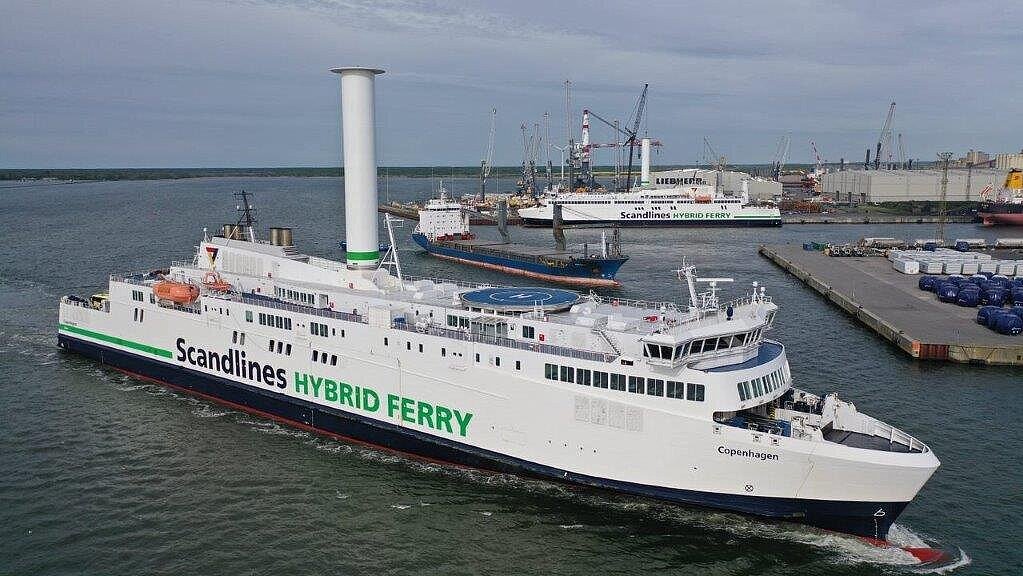
WASP project a boost for wind power

The success of the rotor sail installation on board the ferry Copenhagen had led to Scandlines installing a similar system on the ship’s sister vessel, Berlin (Source: Scandlines)
The EU Wind Assisted Ship Propulsion (WASP) project, involving five commercial ships retrofitted with wind-assist systems, has concluded with positive signals for the sector in the future.
Funded by the Interreg North Sea Europe programme, part of the European Regional Development Fund (ERDF), the WASP project involved participants including universities, wind-assist technology providers, and shipowners. Together, they researched, tested, and validated the efficacy of various systems, concluding that fuel savings, though variable, could rise to 10% depending on route and vessel operational profile.
Three different wind propulsion technologies were tested aboard the five ships, and the results were validated by third parties to verify the actual fuel savings achieved. Over the three-and-a-half years, the project generated a large volume of data relating both to installations and operations, with participants claiming significant benefits for the sector both in the North Sea and beyond.
The project has also contributed to the development of standard procedures for sea trials of ships with wind-assist technology installations and the creation of a framework for key performance indicators in collaboration with the International Towing Tank Conference (ITTC). It is thought that these developments will help to promote the uptake of wind propulsion technology in the future.
The co-owner of Netherlands-based multipurpose vessel owner Boomsma Shipping, Johan Boomsma, said: "We believe energy efficiency is key and are always open to new developments. That is why we are sailing with the eConowind VentiFoils on MV Frisian Sea. I think the three major factors - unit costs, fuel prices, and European ETS legislation - are combining in such a way that wind-assisted propulsion will soon become one of the standard solutions."
Marko Möller, manager Special Projects at Denmark’s Scandlines, commented: "We are proud to be part of this amazing project. By the WASP installations realised and evaluated during the project lifetime, wind technology proved to be an important element of the decarbonisation process of shipping."He added that the success of the rotor sail installation on board the ferry Copenhagen had led to Scandlines installing a similar system on the ship’s sister vessel, Berlin.
